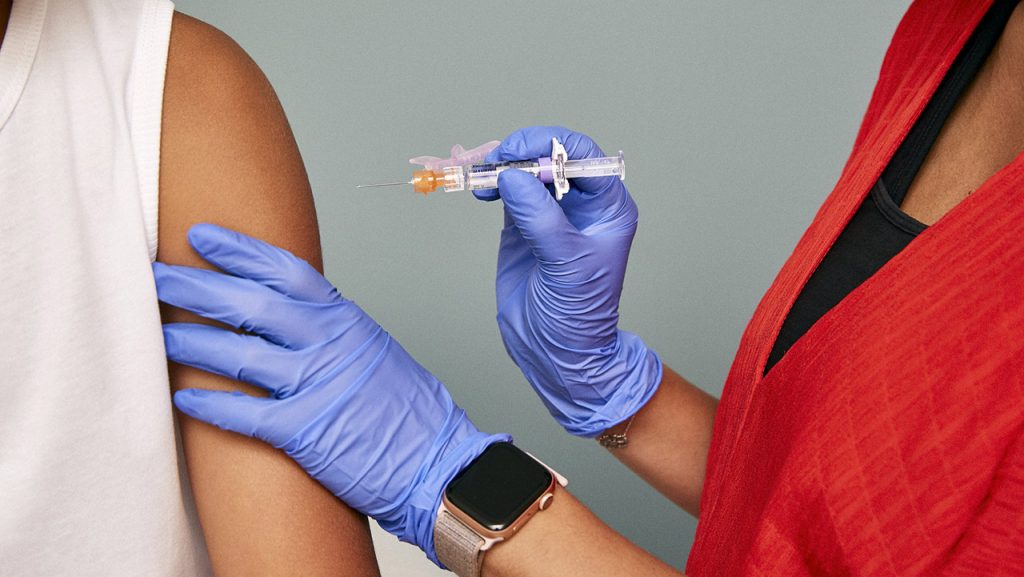Vaccine Distribution Faces Big Challenges and Federal Government is Fumbling
“I worry that we appropriately invested a lot in the discovery of the vaccine but not in the critical last steps of actually getting the vaccine into people’s arms,” says Dr. Megan Ranney.

A group of well-wishers gathered outside Pfizer’s Portage manufacturing facility this weekend to watch trucks carry out the country’s first doses of the coronavirus vaccine. These initial shipments mark an important turning point in America’s widespread inoculation campaign. The deployment of an effective vaccine to frontline healthcare workers is a welcome silver lining after months of struggle and hardship.
“Black and brown folks aren’t just distrustful from history. They have real things happening in the present.” — Dr. Marijata Daniel-Echols, W.K. Kellogg Foundation
Despite this massive step in the fight against COVID-19, there are still many hurdles to be cleared ahead in terms of distribution, logistical management and public health messaging.
Listen: The challenges ahead for vaccine distribution.
Guests
Dr. Megan Ranney is an associate professor of emergency medicine at Brown University and is a practicing emergency physician and researcher. She says that the development of a successful COVID-19 vaccine is only the start of a challenging public health journey ahead.
“I am thrilled that the first vaccine is out,” she tells Stephen Henderson on Detroit Today. “However, I have tremendous concerns about what comes next as we try to distribute this vaccine to the general population.” She says just as the country failed to secure adequate PPE and medical equipment, the federal government has yet to properly invest in the public health infrastructure necessary for widespread vaccine distribution. “The vaccine is a beautiful and important thing… but the public health infrastructure isn’t sexy it’s not something that results in a lot of photo-ops,” says Dr. Ranney on the concerning lack of public health planning.
Dr. Marijata Daniel-Echols is a program officer with the W.K. Kellogg Foundation focusing on health equity in Michigan and is a member of the Michigan Coronavirus Task Force on Racial Disparities. A key component of the public health infrastructure is trust in the medical community, something Daniel-Echols says is lacking especially in communities of color. She says this distrust isn’t simply based on the history of medical abuses, but ongoing issues of structural racism in medicine. “Black and brown folks aren’t just distrustful from history. They have real things happening in the present,” she tells Henderson. The politicization of the vaccine hasn’t helped vaccine hesitancy either, according to Daniel-Echols. She says the heightened politics around the COVID-19 vaccine has undermined the scientific process. In order to combat distrust, Daniel-Echols says it’s important that information on the vaccine comes from trusted messengers embedded in the community.
Web story written by Detroit Today student producer Clare Brennan.
Trusted, accurate, up-to-date
WDET is here to keep you informed on essential information, news and resources related to COVID-19.
This is a stressful, insecure time for many. So it’s more important than ever for you, our listeners and readers, who are able to donate to keep supporting WDET’s mission. Please make a gift today.
